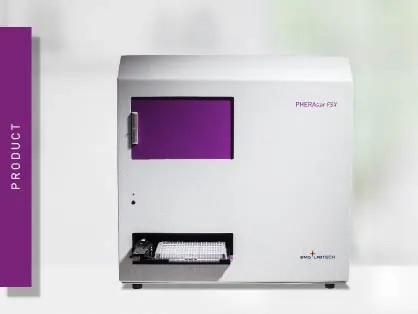
PHERAstar FSX
Powerful and most sensitive HTS plate reader


High-throughput screening is one approach used to find new drugs for unmet clinical needs. Discover how targeting the type 1 cholecystokinin receptor can help to screen for novel obesity treatments.
The type 1 cholecystokinin receptor (CCK1R) and its natural ligand cholecystokinin (CCK) have been implicated in the regulation of appetite and satiation and have therefore been the focus of several drug discovery campaigns with the aim to identify obesity treatments. Previously identified CCK1R agonists have never reached the market stage, likely due to side effects resulting from long-lasting over-stimulation of CCK1Rs. To overcome these shortcomings, the team focused on the identification of positive allosteric modulators (PAMs) lacking inherent agonist activity, which have been proposed to enhance and restore CCK1R actions in dysfunctional physiologic systems as found in patients with obesity.
Here, Daniela Dengler discusses a high-throughput screening campaign and the development of a testing funnel, which led to the identification of novel acting CCK1R modulators. A 360,000 small molecule compound library was screened by TR-FRET based IP-One accumulation assays tailored to either detect PAMs, agonists, or non-specific hits. Moreover, a TR-FRET binding assay was established by generating a fluorophore-labeled CCK analog and SNAP-tagged CCK1Rs to filter out orthosteric or negative-allosteric binders. Further, a multiplex PAM assay was developed recording compound action on secondary effector proteins Gαs and 𝛽-arrestin by detecting cAMP accumulation and NanoBiT complementation of 𝛽-arrestin-2 and CCK1R modified with split-luciferase fragments.
This multiplex method represents an improved tool to assess functional selectivity profiles. The designed testing funnel enabled the discovery of a molecule that significantly enhanced CCK signaling without intrinsically activating CCK1Rs.
All assays were optimised for automation and data were generated using PHERAstar FS/FSX microplate readers.

Powerful and most sensitive HTS plate reader